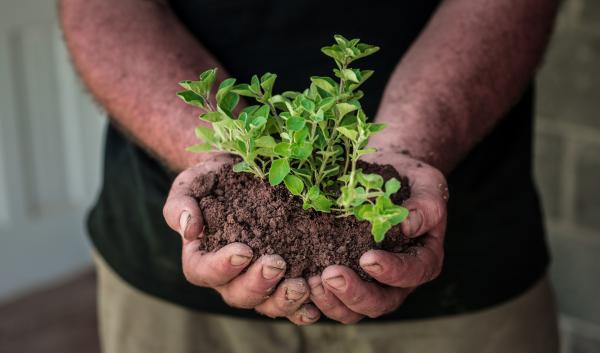Capstone students are helping us hear the stories of farmers who are adapting to climate change
The Public Communication Capstone is a service-learning course at the University of Vermont (UVM). The USDA Northeast Climate Hub partnered with teams of Capstone students in spring and fall 2019 to develop profiles on Vermont farmers who have found ways to adapt to the current climate trends. Through this Capstone project, students developed professional-level integrated communication materials to meet current needs of local and regional organizations.
Using the skills developed throughout their tenure at UVM, the students used the real-world projects to build and demonstrate their competencies in leadership and teamwork, research, evaluation, written and visual communication, technology, and social marketing. The spring team includes Lulu Prinsloo, Luke Petela, Emmanuel Archilla, Bryanna Occhiboi, and Meg Barnett. The fall team is Kian Deshler, Melissa Gentile, Eli Kushen, Carter Neubieser, and Izzy Rotondo. With advice and guidance from UVM’s Climate Hub liaison, Alissa White, the teams decided to use peer learning and case studies as a story-based communication method to help share information on climate resilience from and to farmers. The students not only helped the Northeast Climate Hub explore climate adaptation on working Vermont farms, but they were also able to gain hands-on experience as the next generation of communication specialists.
Due to the small size of the operation, and the significant role Common Roots plays in the local community, any disruption feels magnified. Like many farmers in the area, Fae Blackmer cited extreme weather due to climate change as one of the biggest challenges facing the farm.
"Irregular wind patterns are affecting the protection of many crops," says David Zuckerman. Like other small to medium-scale farms in Vermont, Full Moon is not immune to climate challenges. Some challenges are more easily dealt with than others. Some of the biggest climate concerns at Full Moon Farm include irregular wind, drought, and fluctuating temperatures.
Unfortunately, like most farms, Elmer Farm has been negatively affected by radical weather changes that have taken place in recent years. Harsh windstorms often blow greenhouses apart and ruin crop growth taking place inside.
For the last three years, drought has affected their hay yields making it difficult to get certified organic hay. These drought conditions have made hay more expensive and scarce for this pasture managed, alpine goat operation.
Meeting Place Pastures already sees the impacts of climate change on the land they manage. More drought and flooding events are affecting the rate at which their pastures grow. Marc intends to continue to practice and promote rotational grazing as an effective way to run his business and sequester carbon from the atmosphere into the soil.




